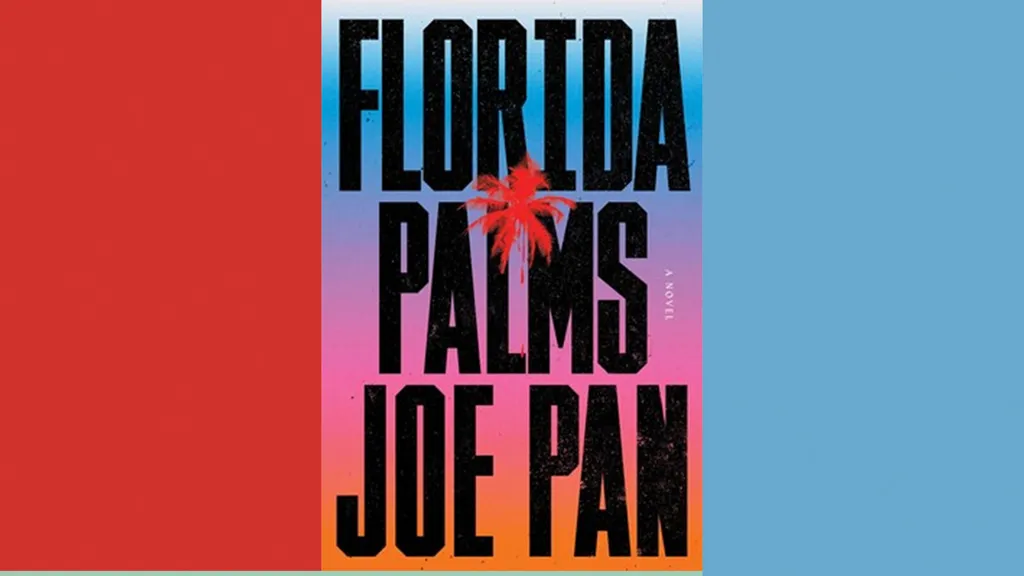When you purchase an independently reviewed book through our site, we earn an affiliate commission.
FLORIDA PALMS, by Joe Pan
"Florida Palms," by Joe Pan, is the kind of debut novel that wears its regionalism proudly on its sleeve. Within the first three pages, its teenage protagonists, Eddy and Cueball, have shown us how to behead a catfish, use a paper clip to convert a Dr Pepper can into a hash pipe, and harvest sand fleas with PVC pipes to use as bait for Gulf Coast pompano.
Our young heroes live lives of quiet intoxication in a brackish part of Central Florida during the Great Recession, and the author certainly seems to know the lay of the land. Pan has more in mind than a sympathetic portrait of the so-called Other America, however. "Florida Palms" is a crime novel, if one in fancy dress, and the palms of the book's title are more than just a threadbare tropical cliché: They're the emblem of a northwest Florida narcotics gang, for which Cueball and Eddy will soon be doing things far more sinister than decapitating catfish.
The two friends are well adrift in their deep-fried, aimless final year of high school when Cueball's father, a paternalistic biker and ex-con named Bird, presents them with a devil's bargain -- entry-level positions in a distribution network for a brand-new party drug, somewhat bluntly named "shank," that promises to make kingpins of them all. They say yes. Spoiler alert: Things go wrong, then wronger.
The pleasure here, as any noir fan can tell you, lies less in the larger plot points than in the specifics (a mark surprised by a hit man while half-naked and painted to look like a chicken; the handlebars of a biker's chopper decorated with a human kneecap) and in the overall vibe of doom -- a musky, Florida-specific stew of sweat, blood, swamp gas and amphetamine addiction. "Eddy's stomach churned," we read in the first chapter, during what prove to be our hero's last moments of comparative innocence. "Was he sick or having a good time?" The answer, both for Eddy and for us, turns out to be a combination of the two.
Perhaps Pan's finest achievement is the novel's heavy: a professional killer and all-around dirty-deeds man with the improbable moniker of Gumby. A self-loathing psychopath with a spiritual relationship to knife work, Gumby recuperates from the stresses of his day job by hunting endangered Florida panthers. The chapter in which he initiates a panicked Cueball into his grisly trade is arguably both the book's fulcrum and high point, and his closing monologue will stay with me for a while: "You did it. My boy. You know what you've gained here, son? You know what you now possess? The multitude. The whole world's yours to lean on."
Like many debuts (including this reviewer's own), "Florida Palms" occasionally struggles with what might be termed "first novel problems": the ambition to be all things to all people, to entertain us to within an inch of our lives, and to gobsmack us with its poetry. A thunderstorm doesn't simply roll in; instead, the "night sky ruptured with a forking pulse of blue light, detailing in full the reticulate inner architecture of a cluster of storm clouds." The tweakers and dropouts peopling Pan's narrative often sound exactly like the lost, bewildered teenagers they're intended to be; at other times, they say things like: "I think if you give folks space, while encouraging new outlooks, they'll eventually find their way. People are softened by time, proximity."
I'm reluctant to quibble with the literary impulse too much, however, because it also gives us, 200 pages later, this beautiful description: "The beaches of Fort Lauderdale differ from other beaches along Florida's eastern coast. ... Lauderdale consists mainly of crushed microscopic seashells and quartz granules dredged from the ocean floor and spread out in a lustrous gray-golden hue. Over the years, trucked-in sand and hurricanes have altered the composition, and in this way, the shoreline is in constant revision, much like the city itself."
Nothing ventured, in other words, nothing gained. And "Florida Palms," to Pan's credit, ventures a great deal more than most.
FLORIDA PALMS | By Joe Pan | Simon & Schuster | 465 pp. | $29.99
